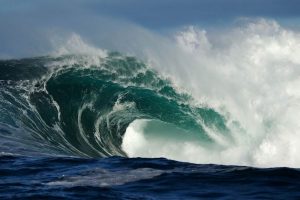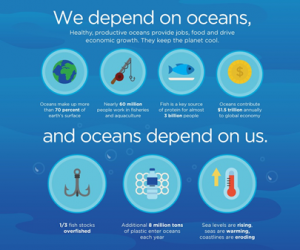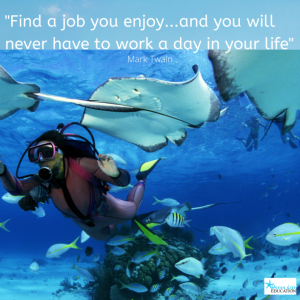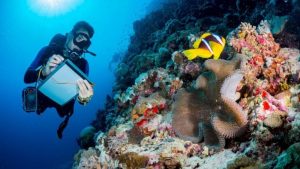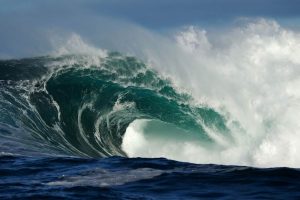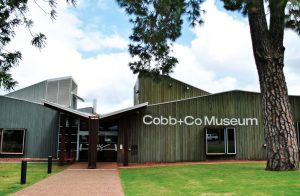Healthy, productive oceans are essential for food, jobs and economic growth. They also keep the planet cool – in more ways than one!
1. 50-70% of our oxygen – This oxygen comes from phytoplankton (tiny oceanplants that live close to the water’s surface and use sunlight and carbon dioxide to make food).
2. Absorption of carbon dioxide – About 30 per cent of carbon dioxide produced by humans is absorbed by our oceans, buffering the impacts of global warming.
3. Climate regulation – Oceans transport heat from the equator to the poles, regulating our climate and weather patterns.
4. Economic benefit and jobs for millions of people – Ocean-dependant businesses directly or indirectly employ over 200 million people worldwide.
5. Food for millions of people – Oceans serve as the world’s largest source of protein, with more than 3 billion people depending on the oceans as their primary source. Ingredients from the sea are found in surprising foods such as peanut butter and soymilk.
6. Breakdown and removal of waste and pollution
7. Marine transportation for world trade – Over two thirds of most developed countries’ trade involves some form of marine transportation.
8. The majority of life on earth – As over 70% of the Earth’s surface is underwater, it comes as no surprise that marine species outnumber those on land – an incredible 94 per cent of the Earth’s living species exist within the oceans.
9. Tourism, recreation and fun – Fishing, boating, kayaking, diving, surfing and whale watching – the ocean provides us with many unique activities. Humans just love the beach and coastline!
10. Medicine: Many medicinal products come from the ocean, including ingredients that help fight cancer, arthritis, Alzheimer’s disease, heart disease. The ocean is also an ally in fighting Covid 19.



